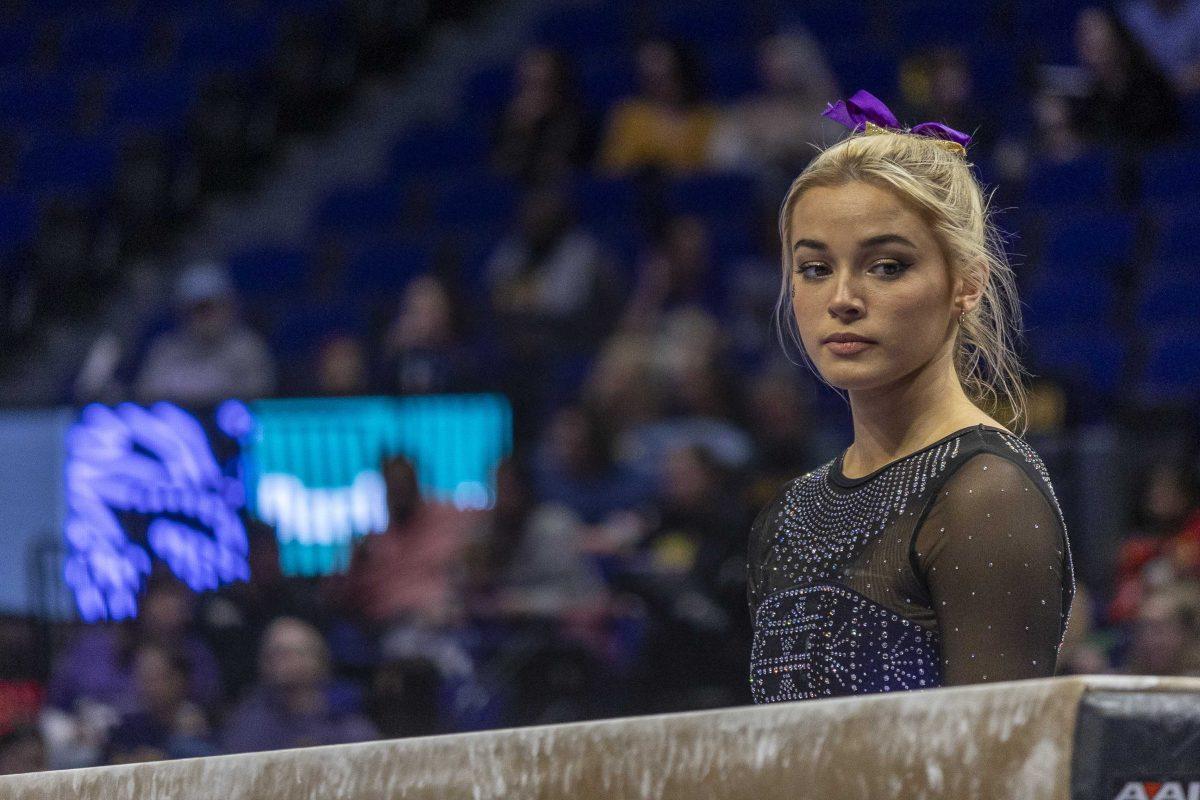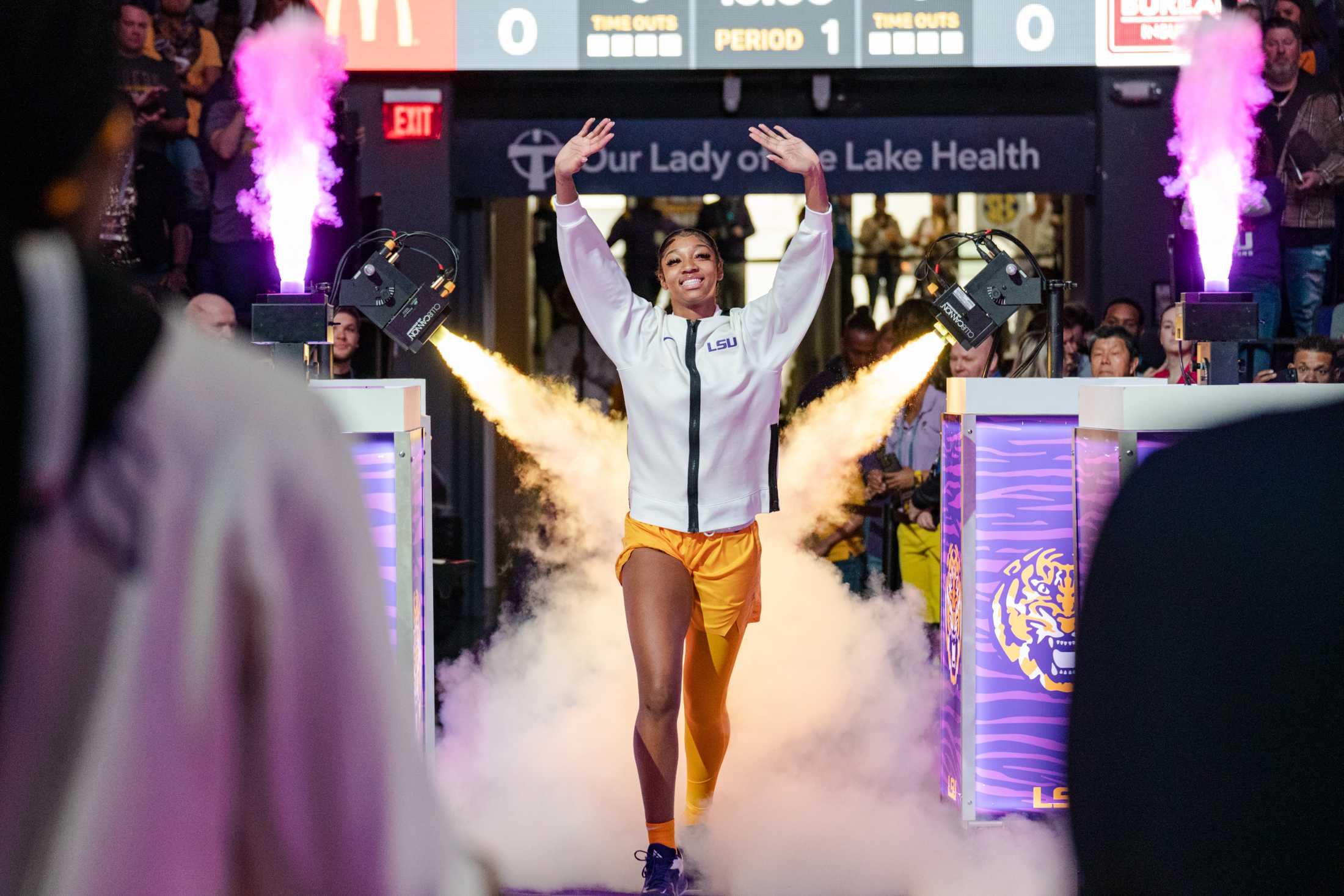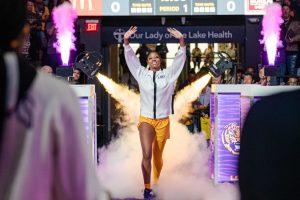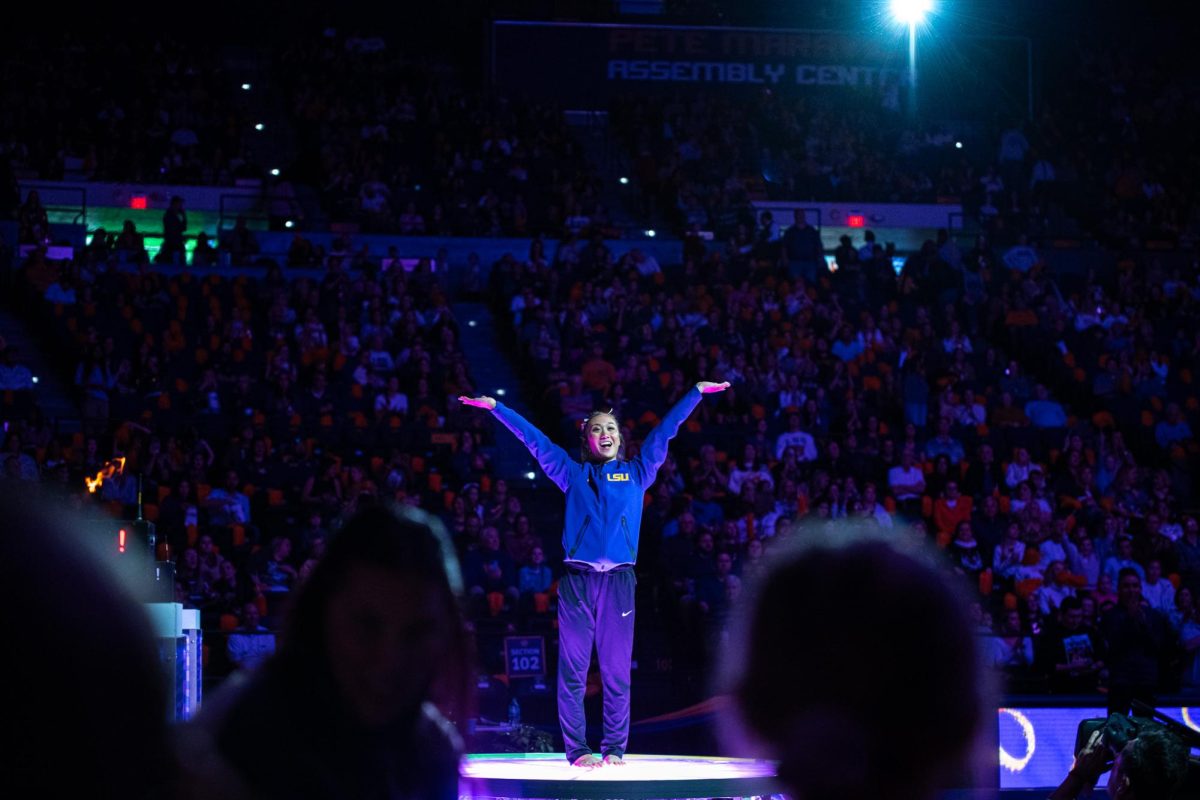WNBA legend Candace Parker earned $100,000 for the 2023 season.
She took nearly a 50% pay cut to join the Las Vegas Aces after making $192,500 with the Chicago Sky. The Aces could then maintain its roster of high-performing players. Parker’s team-first attitude underpinned the Aces’ championship in October.
By comparison, when the Denver Nuggets won the 2023 NBA championship, the lowest-paid player on the 18-man roster made $580,373 after the salary cap, according to Spotrac, which tracks pro-athlete contracts and player financials.
But thanks to name, image and likeness deals, known as NIL, the game is changing for female student athletes, regardless of the gender pay gaps that exist in professional institutions.
Athletes who traditionally have had to sacrifice pay for the success of their organizations now gain opportunities to increase their monetary success, starting at the college level.
LSU gymnast Olivia “Livvy” Dunne is the top female NIL earner with a $3.3 million NIL valuation, according to On3, a digital media company that tracks NIL developments. If Dunne chose to go pro, the bulk of her income would still be from endorsements and not the sport itself.
“There are many more professional leagues for men’s sports after college, rather than women’s sports,” Dunne said. “It’s really important for female student athletes to capitalize on your NIL while you’re in college.
Dunne used her NIL success to start The Livvy Fund, which helps LSU female athletes gain deals by providing exclusive industry tips and brand connections. The fund sets up athletes with endorsements in their college years, so they can start earning regardless of whether they go to the pros.
In addition to Dunne, LSU has multiple top female NIL earners. Women’s basketball stars Angel Reese and Flau’jae Johnson have NIL valuations of over $1 million each, according to On3. However, the maximum salary for a WNBA player is $234,936.
Once female athletes leave LSU, they are unable to earn as much in the pros compared to NIL deals. The Livvy Fund and NILSU, a program that provides NIL resources to LSU athletes, aim to change these inequalities.
Livvy Dunne’s sister Julz Dunne, who works with the fund, said, “Olivia is an outlier in the field, and she just skyrocketed. But, she wants to provide opportunities for all women and hopefully help even the playing field … We are trying to make a balance between men’s and women’s athletics.”
NIL collectives around the nation, which are funded by fans and boosters, largely support male athletics.
The NIL marketing platform Opendorse found that even when not including football, over 60% of funding still goes to male athletes.
Julz Dunne said it’s necessary to have a female-only fund because “when it comes to going through NIL with a collective at a university, most of the money goes to men’s athletics; so especially with the Livvy Fund, here we are trying to create as many business opportunities as we can for women.”
On July 1, 2021, student athletes nationwide gained the right to profit from their NIL, following new state laws and an NCAA policy change after a decades-long battle. With this change, LSU fully embraced NIL and created the NILSU organization under the athletics department.
Two years later, the NIL office is finding women athletes excel in this space because of their comfort on digital platforms.
“I think the female student athletes are doing so much better because they are more structured on social media,” said Taylor Jacobs, associate athletic director of NIL and strategic initiatives at LSU. “They create content. They are more comfortable creating content, and they have content plans. They just get more involved in the content piece, which is what a lot of brands look for.”
Assistant director of NIL Mary Claire Logue said the financial success of top female earners like Reese and Johnson stem from their achievements on social media.
“The amount of views that the women’s basketball national championship got broke all sorts of records, and that’s because of the social media branding that Flau’jae and Angel have done,” Logue said. “They did a phenomenal job with branding themselves.”
Reese and Johnson have a combined 4.3 million followers on Instagram and continue to grow their social media presence.
While it’s been easier for LSU women’s basketball players and LSU gymnasts to grow their brands, the NIL office helps athletes in all sports. According to the office, the sport’s popularity doesn’t necessarily correlate to an athlete’s NIL success. For athletes in less prominent sports, winning in the NIL game is about time and commitment.
“It’s about how much you want to put into it,” Jacobs said. “If an athlete does this and becomes a micro influencer, it’s a business.”
For example, while not the most popular sport in Louisiana, women’s beach volleyball has boomed in NIL deals, Logue said.
“Some of our sports like beach volleyball have gone all in for NIL, and I think that’s what it takes,” she said. “It shows their eagerness to get involved, and it’s been really receptive by brands.”
Fans follow athletes’ flashy social media posts and videos, which don’t portray the effort behind brand deals.
“Not everyone sees the amount of work that goes into it, the amount of smiles, the amount of tears, the amount of hours,” Julz Dunne said.
When female athletes put in the hard work to build their brands, Livvy Dunne said she hopes they realize nothing is out of reach.
“You can be a savvy businesswoman and be able to balance,” Livvy Dunne said. “I mean you can have it all. You can be a student. You can be an athlete. There’s no limit to success, and I feel like that’s something that’s definitely been skewed in athletics.”










